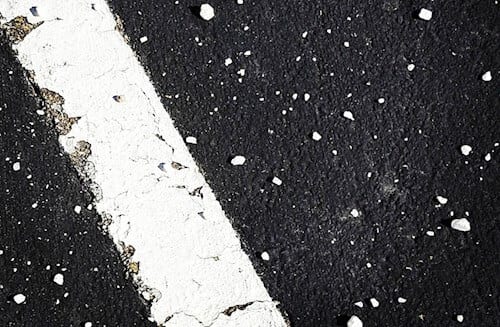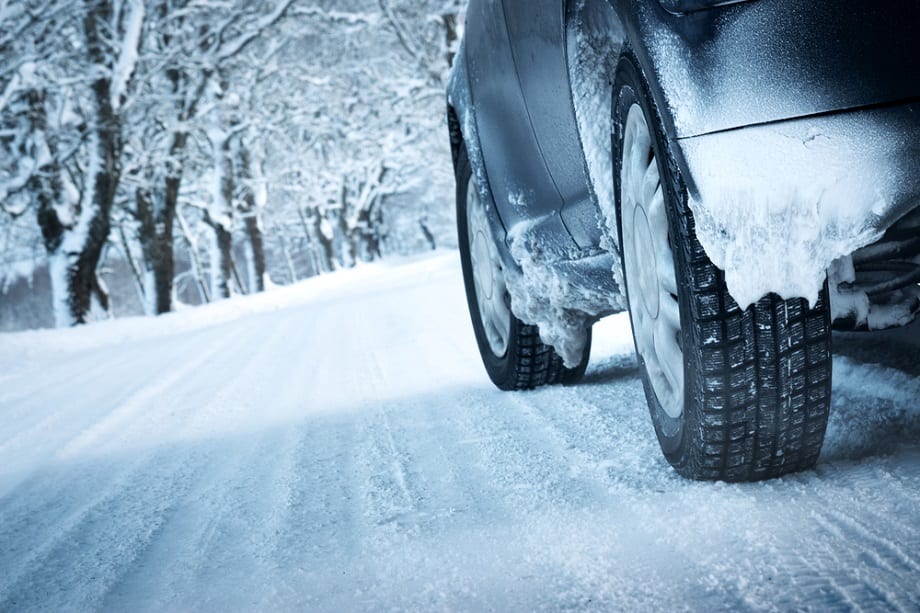Environmental impacts of winter salt use.
Salt used on roadways, sidewalks and parking lots doesn’t just disappear when the snow and ice are gone. The salt is washed away, either into storm drains or through drainage ditches and ultimately into lakes and streams.
Public safety is a top priority and we must keep our roadways safe but environmental concerns should be considered as well. A University of Wisconsin study that looked at 371 lakes in eastern North America has found that road salt runoff is increasing salt concentration in freshwater lakes. Chloride, the mineral in salt that contaminates water, is toxic to fish, other aquatic life and birds. Once salt is applied in the environment, it doesn’t go away. It’s either stored in the soil or it’s going to be flushed into nearby streams and rivers and lakes. Despite the environmental hazards of spraying roads with salt, the practice persists because it’s cheap and naturally abundant – both valid reasons. However, there are other alternatives.
Just a teaspoon of road salt pollutes 5 gallons of water — forever.
Road salt runoff isn’t the only source of salt pollution. There are many potential sources throughout the watershed – homes, businesses, schools, churches – anywhere salt is applied. That includes driveways, sidewalks and parking lots.
To reduce your salt use after a snowfall, follow these tips from Wisconsin Salt Wise:

(Courtesy: WI Salt Wise)
- Shovel: Clear walkways and other areas before the snow turns to ice. The more snow you can remove, the less salt you will have to use.
- Scatter: If you use salt, scatter it so there is space between the grains. Believe it or not, just one coffee mug of salt is enough to treat a 20-foot single car driveway, or 10 sidewalk squares. (see photo)
- Switch: When pavement temperatures drop below 15 degrees, salt becomes ineffective. Switch to sand for traction or to a different ice melter manufactured to work at lower temperatures.
- Sweep: If the forecast calls for rain, sweep up any leftover salt from driveways and sidewalks. This way, extra salt won’t wash into our lakes and waterways.
Check Your Water Softener
People soften their water to make water heaters operate more efficiently, prevent hard water spots on dishes, and make soaps lather more. In most communities, salty brine from water softeners drains to municipal wastewater treatment plants that aren’t designed to remove salt from wastewater, so the salt passes through to a lake or stream. If your household water softener uses more than one bag of salt per month, have a professional tune it up or replace it with a high-efficiency water softener.
Beware of Labeling
Just because salt is a natural product doesn’t mean it is safe for the environment. There are no labeling requirements for salt. Manufacturers can label products however they choose. This means they can incorrectly label products to say they are pet safe or environmentally friendly. Be an informed consumer.
Salt by the Numbers
22 million tons of salt is sprayed on US roadways annually
70% of salt sprayed on roads filters into municipal watersheds
91% of sodium chloride in a watershed that can be attributed to road salt
40% estimated percent of urban streams in the country with chloride levels above safe guidelines for aquatic life
Sources: United State Geological Survey; Indiana University; Department of Environmental Conservation, New York
If you would like more information on salt pollution, please visit:
Chloride 101 | Minnesota Pollution Control Agency (state.mn.us)

Hi, I’m Debbie Palmer. I received a BS in Horticulture from Purdue University. Here at LMEF, I am responsible for outreach presentations, monitoring the lake and it’s wetlands, project manager for restoration and research projects, and act as a community resource for all things related to the well-being of Lake Maxinkuckee and its surrounding watershed. I completed Indiana Watershed Leadership Academy, volunteer with the Indiana Clean Lakes Program, Hoosier River Watch and Marshall County Lakes and Waters and serve as a Board Member for Indiana Lakes Management Society.


Recent Comments